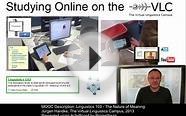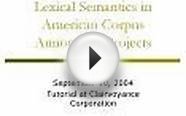
Semantics meaning in Telugu
Use of Internet becomes more popular in India to avail the information needs. A major area of Information browsing includes education, Medical, Agriculture, Geographical, Business and other social domains. Availability of electronic documents for Indian Language is growing day by day. The people living throughout India speak different languages. The government of India has given "languages of the 8th Schedule" official status for 22 languages. Compare to European languages and other Indian languages, processing of Telugu language electronic documents is more difficult in nature. This is due to multi – encoding formats of the text. Indian languages are encoded using Unicode, ISCII. To fasten the retrieval process the Unicode or ISCII is need to be converted into simple and standard encoding which makes Information Retrieval as easy task. Once the information processing system is build for a mono-lingual, it is the base to go for Multi-lingual and Cross – lingual information processing. In Information Retrieval process users expects exact results for the
given query. It depends on the vocabulary expertization of the end
user in building the root query. Word mismatch is common problem of all languages in Information Retrieval process. Query Expansion gives a solution to the word mismatch problem. In Query Expansion the top ranked documents are used to expand the query terms. Sometimes user need to judge the relevance of he expanded query to iterate search. The relevance judgment of the user depends on the knowledge (i.e Language knowledge to
describe the context of the query) of the user. If the concept hierarchy is properly defined, then user involvement is void in this
scenario. This can be easily test on English language, but applying
Query Reformulation technique directly on Indian languages is not
stands good, because the nature of Indian languages is not simple
like English. The Paper is aimed to reduce the mismatch between
user query and retrieved documents by using semantic relationships between query terms and document terms. To test the proposed model, Telugu language, one of the Indian languages is taken as a case study. True translation from English to Telugu and vice versa is not possible due to high word conflation in Indian languages. This paper is an attempt to adopt Semantic Network with semantic relationships between terms of a query to reformulate and iterate the search. Method of Relevance Feedback
You might also like






